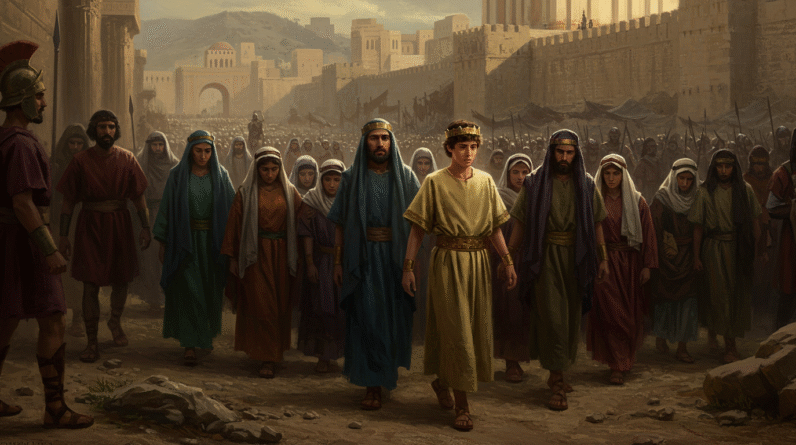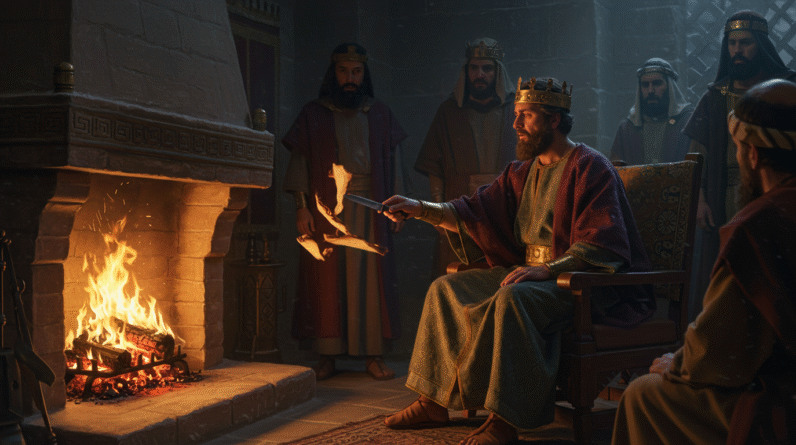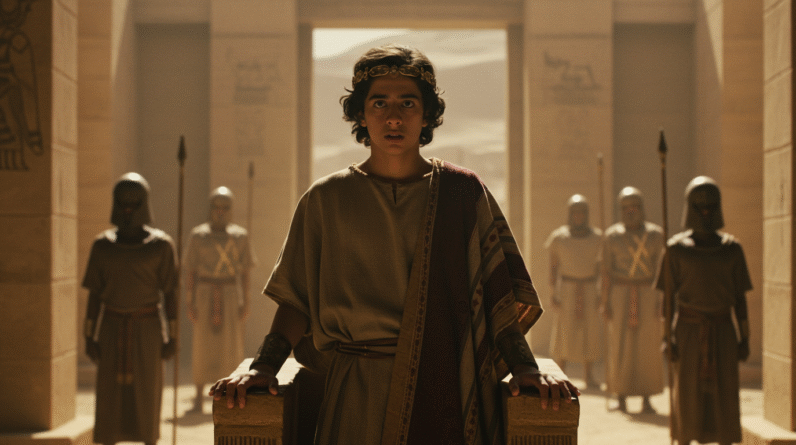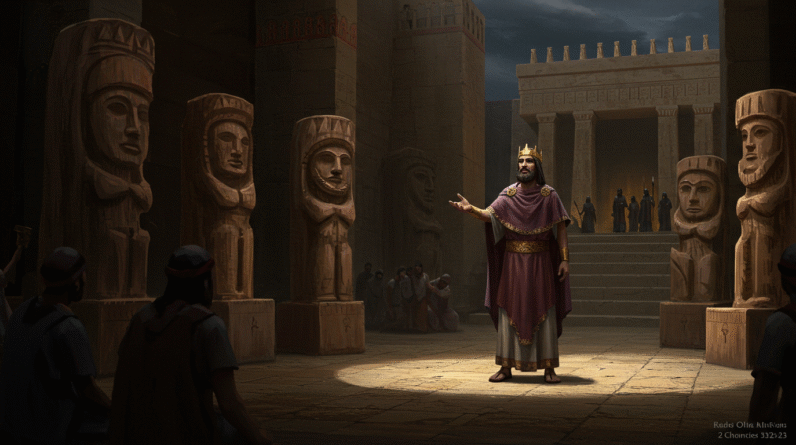Explore the intriguing story of Rehoboam, son of Solomon, and the first King of Judah. Discover leadership lessons from his reign and the split of Israel and Judah.
Rehoboam: The First King of Judah
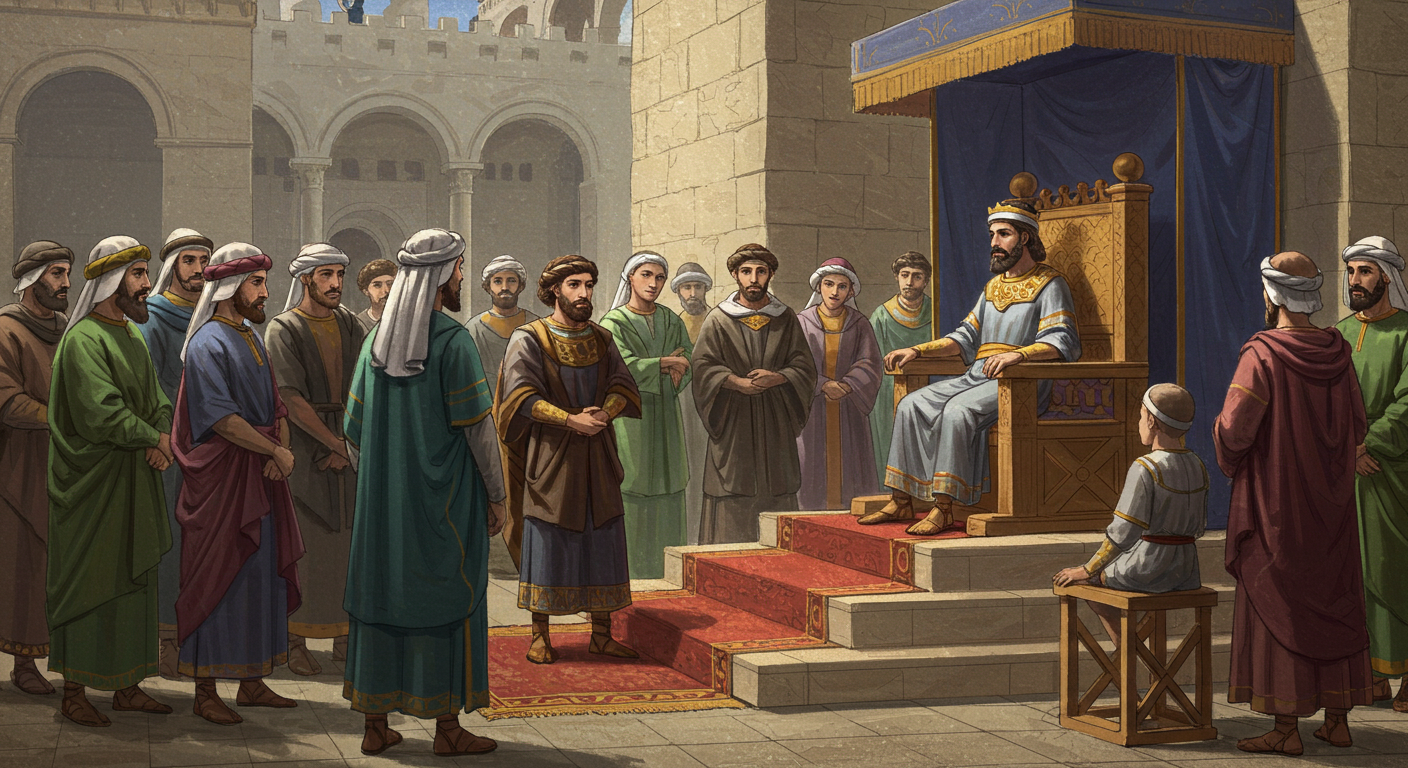
Introduction
Have you ever considered what it means to be a leader, or the weight of expectations placed upon someone stepping into power? This question becomes vivid when we dive into the story of Rehoboam, the first King of Judah, and son of the legendary King Solomon. Rehoboam’s ascent to the throne marks a pivotal moment in the biblical narrative, not just for his reign, but for how it shaped the future of Israel and Judah.
Rehoboam’s leadership is noteworthy because it provides insight into the complexities of taking over leadership from a towering figure and the consequences of decisions taken on the throne. This is particularly intriguing when we think about Rehoboam’s impact on the split of the United Kingdom established by his father. In this article, we will navigate through the historical context and biblical story of Rehoboam, while pondering over the lessons we can draw from his life.
Historical and Cultural Context
During Rehoboam’s time, Israel was in a period of significant transition. The nation was a strong, united kingdom under Solomon, marked by immense wealth and wisdom. However, beneath this grandeur, there were simmering tensions and societal disparities. People were burdened by high taxes and labor demands from Solomon’s elaborate building projects, including the construction of the Temple in Jerusalem.
The political landscape was just as turbulent. Israel was surrounded by potential threats from neighboring nations. The delicate balance of upholding unity while managing internal dissent was precarious. This scenario set the stage for Rehoboam’s entry into leadership.
Solomon’s death and Rehoboam’s subsequent rise to power came at a time when Israel was ripe for division. The expectations of Rehoboam were monumental. He needed to maintain the peace and unity his father had achieved, amidst rising dissatisfaction with the royal court’s heavy demands on the people.
Biographical Overview
Rehoboam was born to Solomon and an Ammonite princess named Naamah, and his upbringing was undoubtedly filled with privilege and expectation. We don’t know much about his early life, but it’s reasonable to assume he was groomed to take on royal responsibilities (1 Kings 14:21).
Upon Solomon’s death, Rehoboam went to Shechem to be formally crowned as king (1 Kings 12:1). This moment was a pivotal one, for it displayed not only the formal transfer of power but also the initial challenge of his reign—the request from the people for lighter labor and tax burdens (1 Kings 12:4).
Rehoboam had a critical decision to make, one that defined his reign and the nation’s future. His refusal to ease the burdens led to the revolt of the northern tribes, resulting in the split of the kingdom (1 Kings 12:16-20).
Key Biblical Narratives and Passages
The key biblical episodes of Rehoboam’s life are recorded in the books of Kings and Chronicles. These passages highlight his rise to kingship and the subsequent division of the kingdom.
- 1 Kings 11:43 and 2 Chronicles 9:31 mention his ascension to the throne.
- 1 Kings 12:1-24 details the assembly at Shechem and the revolt that followed.
- 2 Chronicles 10:1-19 offers a parallel account with a focus on his interactions with the older and younger advisors.
These passages do more than just tell a story; they provide a lens through which to view a shift in Israel’s history—the transition from a united monarchy to a divided kingdom.
Leadership Qualities and Challenges
Rehoboam’s story illustrates a leader under pressure, navigating counsel and making pivotal decisions. His key leadership moment came with the choice to listen to the advice of his youthful peers over the seasoned counsel of the elder statesmen (1 Kings 12:8-11). This moment underscores the vein of pride and shortsightedness that sometimes clouded his judgment.
On the flip side, Rehoboam’s challenge was also his inheritance. He had to fill the mammoth shoes of Solomon, ruling a kingdom teetering between historic unity and emerging division. His failure to address social grievances effectively led to the most significant crisis of his reign, indicating the complexities inherent in his leadership tenure (1 Kings 12:16-20).
Legacy and Impact
The immediate impact of Rehoboam’s decisions is undeniable. His reign saw the dramatic schism of the united monarchy into the Kingdom of Judah, which he ruled, and the Kingdom of Israel. This division had profound implications, leading to separate paths in history and spirituality for the Northern and Southern kingdoms.
In the long term, Rehoboam’s reign is often seen as a cautionary tale regarding leadership and decision-making, especially the importance of wise and compassionate governance. His legacy serves as a reminder of how choices can ripple through time, affecting countless lives and shaping history.
For modern readers and leaders, Rehoboam’s story highlights the necessity of humility, the wisdom of listening, and the risks of dismissing unified grievances in any community.
Scriptural and Scholarly Analysis
A study of various translations and interpretations of the biblical text reveals differing emphasis on Rehoboam’s decisions. Some scholars focus on the political dynamics, while others emphasize divine will and prophecy fulfillment narratives that paint Rehoboam as a part of a larger, divine plan (1 Kings 14:25-28).
Theologically, Rehoboam’s story aligns with the biblical theme of covenant and consequence; his reign reminds Israel of the fragile balance between divine blessing and human responsibility. This sets the stage for further exploration into leadership that honors divine principles while remaining aware of human limitations and community needs.
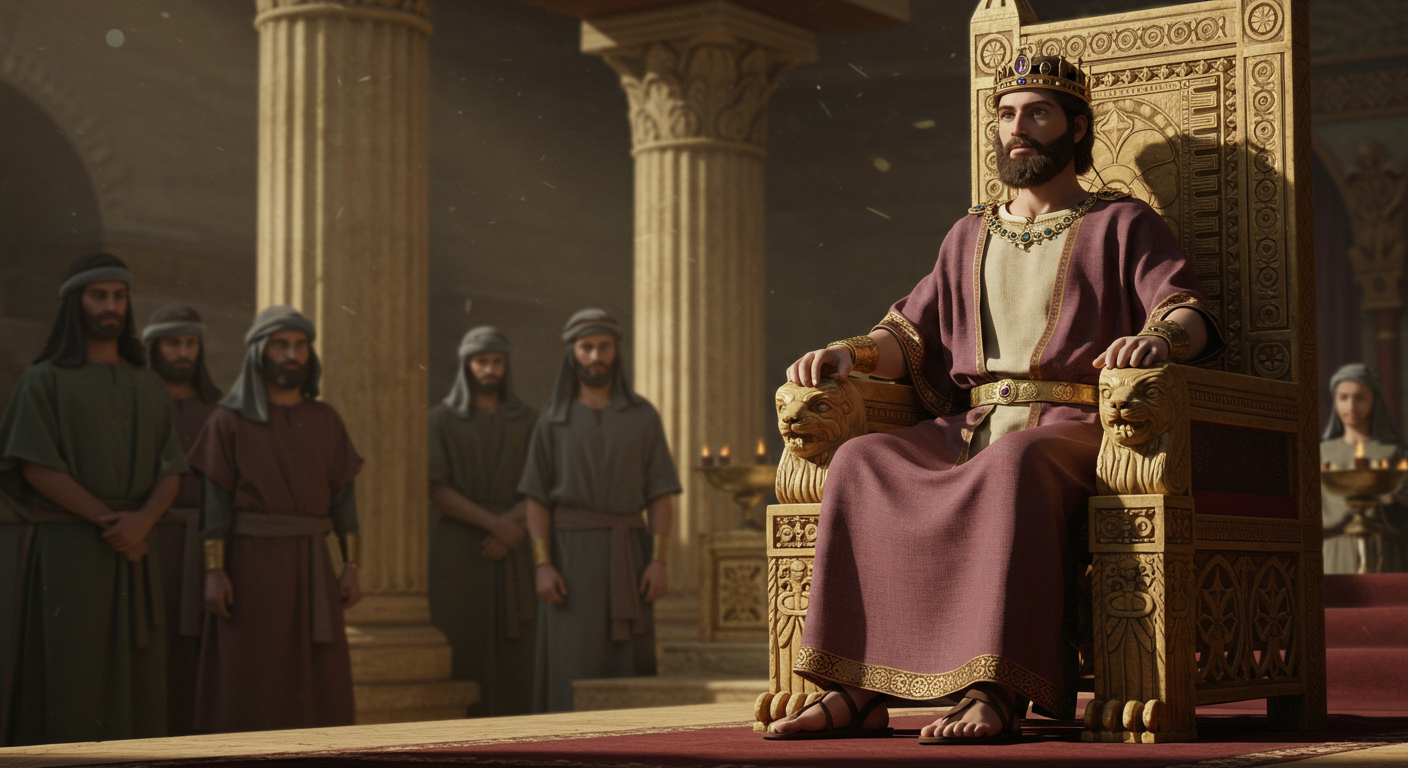
Conclusion
Rehoboam, the first King of Judah, serves as an influential figure in the biblical narrative, reflecting both the challenges of leadership transition and the profound impacts decisions can bear upon a people. His story of division and consequence is a vital part of Israel’s history and offers timeless lessons on the complexities of leadership.
As you reflect on Rehoboam’s multifaceted legacy, consider not only the historical events but the enduring human condition that it reflects. He is a vivid reminder of the blending of human choice and divine narrative—a dynamic that continues to influence leaders even today.



